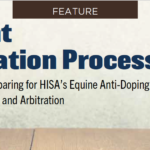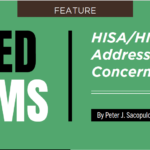Written by: Mike J. Sacopulos
Under House Bill 7095, also known as the “Pill Mill Bill”, counterfeit-proof prescription pads must be used by health care practitioners for prescribing controlled substances listed in Section 893.03 of the Florida Statutes. The law became effective on July 1, 2011, however, Surgeon General, Dr. Frank Farmer issued a supplemental order on July 6, 2011, suspending the requirement for health care practitioners to use counterfeit-proof prescription pads for 60 days.
The Florida Department of Health received many phone calls from both patients and practitioners stating that pharmacies were not filling prescriptions for controlled substances because the prescriptions were not written on the required counterfeit-proof prescription pads.
“Once we began learning of the unintended consequences to law-abiding doctors and patients with legitimate health care needs, we knew we needed to take action to prevent substantial injury or harm to patients,” said Dr. Farmer. “Issuing the supplemental order provides practitioners the time needed to order the necessary prescription pads to ensure public safety over the long term.”
“As a licensed practitioner myself, I understand the complexities of running a medical practice,” stated Dr. Farmer. “But in the interest of public health and safety to stop the abuse of prescription drugs, I urge all of Florida’s licensed health care practitioners to visit DOH’s website and order the counterfeit-proof prescription pads.”
Dr. Farmer had declared that a “state of emergency” existed due to the prescription drug crisis in Florida. House Bill 7095 was designed to stop Florida’s prescription drug trafficking by cracking down on “pill mills, which are illegal clinics that prescribe painkillers without any medical justification. Requiring counterfeit-proof prescription pads is one of the ways House Bill 7095 seeks to reduce drug trafficking. The law additionally, requires reporting of narcotics prescriptions to a state database in seven days instead of fifteen days. Florida is joining several others states, such as California and New Jersey, by requiring approved counterfeit-proof prescription pads.
The Florida Department of Health website contains additional information, including answers to frequently asked questions regarding the prescription pads and an approved vendor list.





